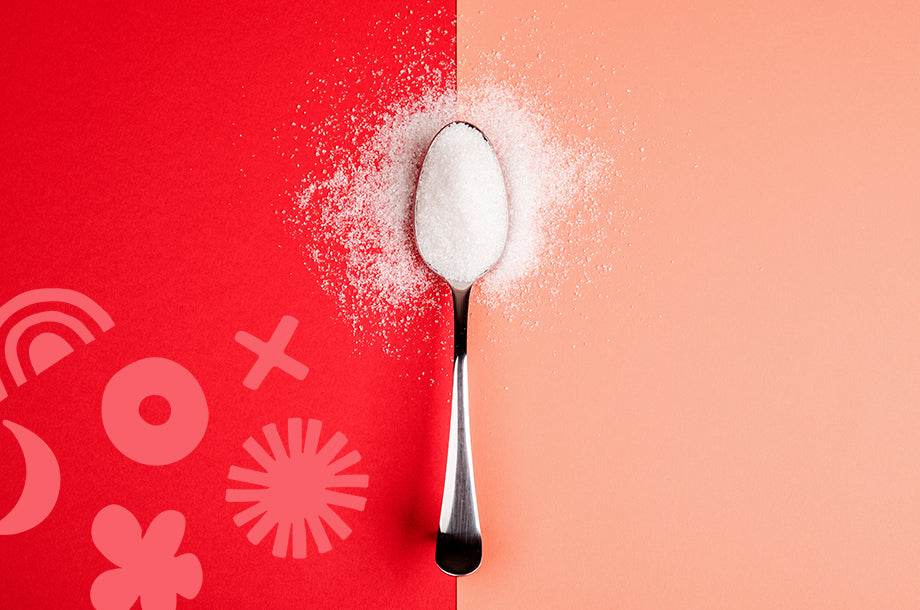Introducing Allulose: A sweet savior & tasty alternative to sugar

Introducing Allulose: A sweet savior & tasty alternative to sugar
Most of us want a little sweetness in life, even if we go out of our way to avoid treats with too much sugar. It's no wonder we crave it — sugar stimulates the pleasure centers of the brain, which explains why it is highly addictive. To make matters more confusing, most alternatives, no matter how "natural," often spike your blood sugar, disrupt your immune system, and promote inflammation.
Table sugar has been shown to contribute to numerous health conditions, including heart disease, obesity, insulin resistance, type 2 diabetes, cognitive decline, and cancer, to name a few. At the same time, the occasional indulgence poses no risk for healthy individuals, but daily over-consumption negatively affects every tissue and cell in the body.
Check out below the four most common natural alternatives to table sugar and how they stack up against your health despite what you may think — and learn more about allulose, our sweet savior! As a baseline, white table sugar contains about 12 grams of sugar and 50 calories per tablespoon.
Raw, local honey has some great health benefits but still turns to sucrose and has all the same risks as conventional sugar, with 17g of sugar and 64 calories per tablespoon.
Coconut sugar has a high fructose content and contains nearly as much fructose and calories as table sugar, with 12g of sugar and 45 calories per tablespoon.
Maple syrup despite being a good source of manganese and riboflavin, has 14g of sugar and 55 calories per tablespoon.
Agave syrup has more fructose than high-fructose corn syrup, with 15 grams of sugar and 60 calories per tablespoon.
So, What's the Best Alternative Sweetener?
We've done our homework here at Fx Chocolate — looking for that perfect sweetness to add to our chocolate supplements.
Allulose is a sweetening agent found naturally in jackfruit, figs, and raisins, with no bitterness or unpleasant aftertaste. With a chemical structure similar to other sugars, it's classified as a "rare sugar" because our bodies don't metabolize it the same way.
Benefits of Allulose
· No impact on blood glucose levels
· Similar taste as sugar with no funky aftertaste
· Free of unpleasant GI effects
· Nearly calorie-free with 10% of the calories of sugar
· Ideal sweetener for keto and low-carb diets
Allulose is a great alternative to the sugar alcohols that are notorious for causing gastrointestinal disruptions, has a pleasant taste very similar to sugar, and carries more benefits than just sweetness.
Net Carbs? No worries.
Because allulose is technically a sugar, the FDA requires allulose to be listed as part of the Total Carbohydrate on food labels, but not listed as sugar. Long story short, it does not contribute to the "Net Carbohydrates" when considering its dietary impact.
Blood Sugar Blessing
Allulose has no impact on blood glucose or insulin levels when consumed in reasonable amounts, is nearly calorie-free, making it an ideal sweetener for people on ketogenic or reduced carb diets. In fact, when allulose is consumed along with other foods, it’s found to improve the body’s glucose and insulin response to the meal. We’re impressed too!
With allulose, you'll never feel like you're missing out. The only thing missing are the seismic spikes and valleys in your blood sugar levels and all the bodily chaos and harm resulting from over-consuming sugar. At Fx Chocolate, it’s the perfect sweetener to pair with our clean and minimal ingredient list to deliver the best taste, quality, and results you’ll find!


